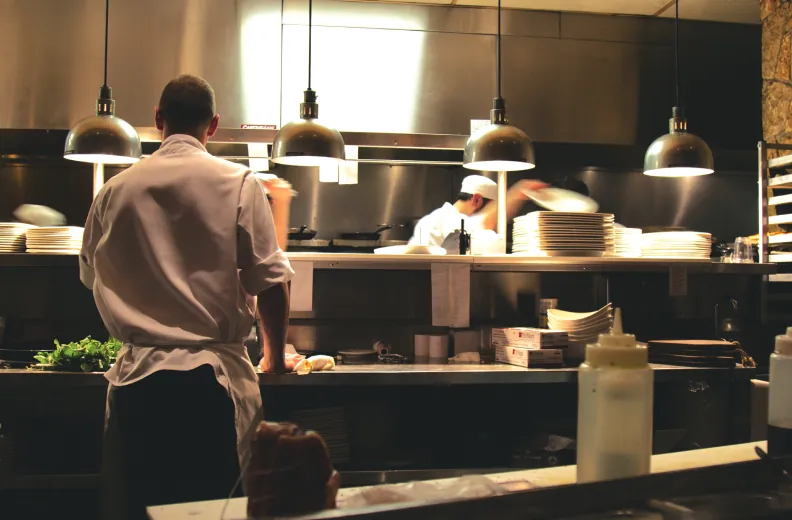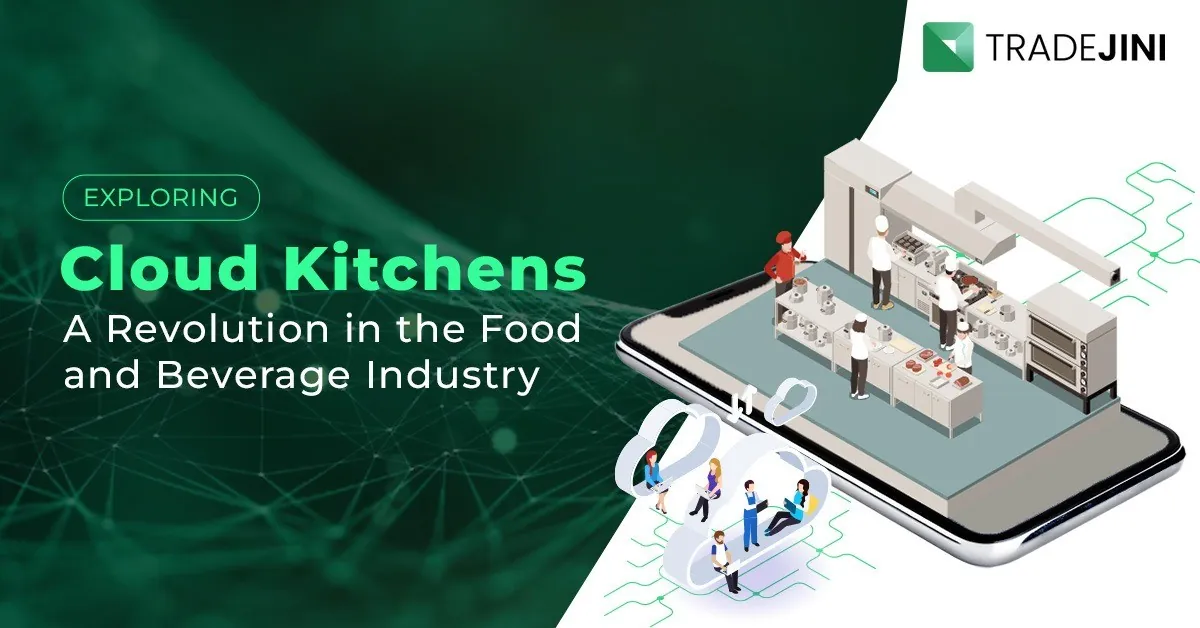The food and beverage industry has witnessed a paradigm shift with the emergence of Cloud Kitchens, also known as Ghost Kitchens or Virtual Kitchens. This groundbreaking concept has redefined the traditional restaurant model by exclusively focusing on food preparation for delivery and takeout, eliminating the need for a physical dine-in space. In this article, we explore the key characteristics, types, benefits, challenges, and technologies associated with Cloud Kitchens, along with a spotlight on some successful startups in the field.
Key Characteristics of Cloud Kitchens:
Cloud Kitchens operate without a dine-in area, leading to lower overhead costs and reduced staffing requirements compared to traditional restaurant models. They leverage strategic locations and cutting-edge technologies to cater to a vast customer base, utilizing online food delivery platforms for order management and delivery logistics.
Comparison with Traditional Restaurant Models:

Types of Cloud Kitchens:
Brand-Owned Cloud Kitchen:
Owned and operated by a single restaurant brand.
Provides complete control over the brand but demands significant marketing investment.
Multi-Brand Kitchen/Shared Space:
Offers a common kitchen space for multiple restaurants or brands.
Cost-effective for businesses starting out or looking to cut expenses.
Commissary Kitchen:
Offered by delivery aggregators, providing shared kitchen space.
Multiple restaurant brands can operate within one larger kitchen space.
Outsourced Kitchen:
Third-party providers handle crucial aspects of kitchen operations.
Allows business owners to focus on food preparation, menu development, and marketing.

Key Benefits of Investing in Cloud Kitchens:
Lower Rent and Overhead Costs:
Operate in less expensive, non-retail locations.
Save on rent, utilities, and maintenance costs.
Less Staffing Requirements:
Streamlined and efficient staffing approach.
Eliminates the need for extensive front-of-house staffing.
Infrastructure and Cost Optimization:
Leverage technology for seamless operations.
Use data analytics for demand forecasting and customer behavior analysis.
Easy to Scale and Expand:
Flexible and adaptable method for business expansion.
Utilize existing kitchen space and logistics for scalability.
Challenges of Running a Cloud Kitchen:
Difficulty in Building Brand Recognition and Loyalty:
Limited exposure without a visible storefront.
Challenges in attracting customers and building brand loyalty.
Reliance on Food Aggregators:
Hefty commissions on transactions.
Balancing visibility and operational costs.
Limited Access to Customer Data:
Transactional nature limits customer interactions.
Difficulty in creating detailed customer profiles for tailored marketing.
Increased Competition:
Growing popularity leads to intensified competition.
Differentiation factors include food quality, pricing, and marketing.
Key Technologies for Operating a Cloud Kitchen:
Online Ordering Platforms:
Digital storefronts for cloud kitchens.
Enable customers to place orders and receive deliveries.
POS Integration:
Centralize order acceptance and consolidation.
Leverage valuable customer data for various purposes.
Inventory Management:
Efficient control over stock levels and ingredient usage.
Reduce waste and avoid inventory shortages.
Delivery Management & Order Tracking:
Ensure seamless operations and better customer satisfaction.
Real-time order tracking capabilities for business owners and customers.
Top Cloud Kitchen Startups:
Faasos (Rebel Foods):
Operational in 15 states across India.
Founded in 2011 by Jaydeep Burman and Kallol Banerjee.
Box8:
Based primarily in Delhi, expanding across India.
Founded in 2012 by Anshul Gupta and Amit Raj.
Kitchens@:
Bangalore-based with around 350 kitchens.
Founded in 2018 by Kizhakkayil.
Behrouz Biryani (Rebel Foods):
Offers Biryani with a 2000-year-old history.
Founded in 2015 by Jaydeep Barman.
Sweet Truth (Rebel Foods):
Taps into the popularity of desserts and sweets.
Founded in 2015 by Jaydeep Barman.
Zomato:
Online food delivery platform with a successful cloud kitchen business.
Founded in 2010 by Deepinder Goyal and Pankaj Chaddah.
Swiggy:
Successful cloud kitchen-based business with over 1000 kitchens.
Founded in August 2014 by Nandan Reddy and Sriharsha Majety.
TravelKhana:
Delivers fresh food exclusively to Indian railway passengers.
Founded in 2012 by Pushpinder Singh.
Oven Story (Rebel Foods):
Offers a variety of pizzas delivered to customers.
Founded in 2015 by Jaydeep Barman.
Biryani By Kilo:
Specializes in delivering Biryani by the kilo.
Founded in 2015 by Kaushik Roy and Vishal Jindal.
Conclusion:
Cloud Kitchens have transformed the F&B industry, providing a cost-effective, scalable, and technologically advanced model. While facing challenges such as building brand recognition and coping with increased competition, these innovative startups continue to thrive. With a focus on kitchen automation, supply chain streamlining, and customer preferences, the future of cloud kitchens remains bright. As the demand for convenient and quality food delivery persists, the growth of the cloud kitchen industry shows no signs of slowing down.
Also Read: Explore evolution of Zomato and Swiggy as they transformed from food delivery



